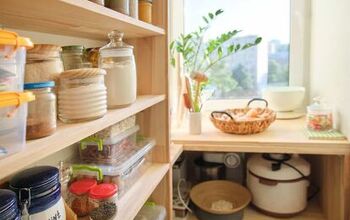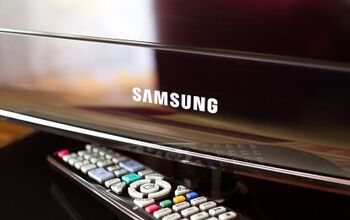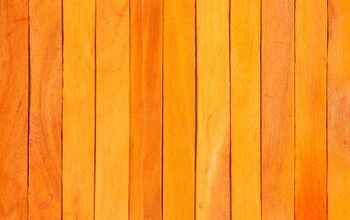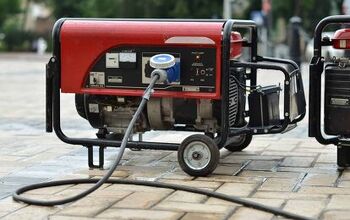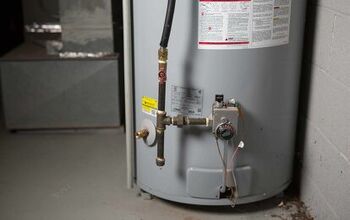How To Get Super Glue Off A Quartz Countertop

Some of the go-to solutions for fixing broken things is super glue. It is quite astonishing how quickly it can repair damage and how strong of an adhesive it is. However, there are additional priceless items in the home that could be damaged by superglue, such as a quartz countertop (if you have one).
As odd as it may sound, when this occurs, you could feel panicked because superglue is the major culprit in potentially ruining things rather than fixing them. Despite how tough it may appear, it is actually rather simple to eliminate super glue from the quartz countertop, so you do not need to worry about it. So, what about glue?
To remove super glue off of your quartz countertop, take a cotton pad and apply acetone to it, and rub it on the glue. This will break the glue down. Then, scrape it off carefully with a razor blade. The glue will loosen, and the clean blade will lift the glue off the quartz with no damage.
Accidents do occur from time to time, and super glue may be involved. It is not very difficult to remove, but you must first check to be sure that the chemical you plan to use won’t damage your quartz countertop.
What Do You Need to Remove Super Glue from Quartz Countertop?
To dissolve super glue from MSI Q Quartz or, for example, a Caesarstone quartz countertop, you typically just need a few simple tools and steps. They both utilize the same quartz base material, so you can treat them equally in any case. The following are the items you will need:
- Razorblades
- Cotton Pads
- Acetone
You can get rid of the terrible super glue from the surface of your quartz countertop using these three items. Carefully follow these instructions to restore the new appearance of your MSI Q or Caesarstone countertops!
How Do You Remove Glue From Quartz Countertop?
Check the acetone’s suitability for your countertop’s surface before continuing. To observe how the acetone might alter it, be sure to perform this procedure in a hidden location.
By doing this, you can prevent further damage to the region with the super glue in case the product stains or ruins the quartz countertop’s finish because it will be hidden from view.
If everything goes well, carefully scrape any remaining super glue chunks off with using your razor blade. You will only need a small amount of acetone on your priceless quartz countertop surface this method, and only the tough stains will be left behind.
The cotton pad should then be wetted with acetone. Although you may administer the acetone to the stain with a cotton ball or cloth as well, a cotton pad gives you greater control as you gently dab it on the super glue damage.
Make sure the super glue on the damaged areas is saturated with acetone. Why do we have to use acetone in place of all other stain removers, you may wonder. Simple: Acetone causes the cyanoacrylate adhesive, which is what super glue is made of, to break down.
Take a moist cloth to quickly wash away any extra acetone before using your razor blade to wipe the adhesive stain off once more. In particular, place the razor at a 45-degree angle and use it in a dragging motion. Continue doing this until the superglue begins to crack and flake off.
If there is any remaining superglue, you can reapply acetone to the difficult-to-remove areas. You can then continue scraping in this manner until the superglue separates from the quartz countertop’s surface.
Whenever washing and cleaning the surface, wait till the acetone has evaporated or wash it off with a damp, then dry towel. You can now continue to wipe the area with water and mild soap once there are no traces of acetone left. Finally, polish as necessary to have a clean surface!
Even though quartz countertops can endure heat and pressure, it is still crucial to handle them carefully. As much as possible, be cautious when handling anything, particularly chemicals, near them to prevent panic moments caused on by substances pouring on this stylish home item. Additionally, make sure you maintain your quartz countertops correctly to keep them looking as new and immaculate as possible.
What’s The Best Way To Clean Your Quartz Countertop?
Here are a few quick tips for keeping them clean and shiny (especially when you’ve managed to get the superglue off the quartz countertop):
- When cleaning, handle with caution. The most useless and damaging thing you can do for your quartz countertop is to scrub vigorously!
- Apply gentle products. Water and a mild, basic soap will do. On the other hand, if the business where you purchased it recommends a particular cleaning solution for it, make sure to use that. The base of your quartz counter should only be cleaned with a clean towel, cloth, or sponge. By doing so, you can prevent a hard scrape from damaging the surface.
- Pick up some non-abrasive cleaning supplies. In this way, you may prevent your countertop from wearing out more quickly while also achieving cleaner, disinfected surfaces.
How Do You Keep Your Quartz Countertop Clean?
It’s not as difficult as you would imagine to clean and treat stains on a quartz countertop. To keep it healthy, it simply needs the strictest care and fewest products.
The best advice is to avoid using super glue on your quartz counter as much as you can. By taking measures, you may avoid worrying about damaging these expensive surfaces.
Make sure that anything that you use for your quartz is quartz approved. Many forget that this is a sensitive surface in which needs to be cared for in a very particular way. As long as you’re sticking with products that are solely made for quartz counters in particular, you should be fine.
Will Acetone Damage Quartz Countertops?
Some cleaning solutions are too acidic or abrasive for quartz. Oven cleansers, lime scaling strippers, bleach, and acetone are just a few of the non-stone cleaning products that can harm quartz by bleaching away or discoloring the glue holding the quartz elements together.
However, while acetone can harm your counter, it’s unlikely as long as you clean the surface after you apply it. Also, as long as you’re using it on a gauze pad or cotton pad to apply it to glue or whatever you’re trying to remove, that’s fine. You just don’t want to dump the whole bottle onto your counter.
Will Magic Eraser Damage Quartz?
Although the Magic Eraser is aggressive and frequently effective at removing surface spots from quartz, it can also occasionally degrade the surface. Although it does not always happen, there is a chance. The resin portion of the countertop is dulled by the abrasives.
If you’re wanting to use the magic eraser on your quartz, it’s best to do this in an inconspicuous area to ensure that it’s not going to leave any permanent damage should you use it in a visible area.
Is Dawn Dish Soap Safe for Quartz Countertops?
Dawn Dish Soap is safe for Quartz countertops. All you want to do is soak a washcloth or towel in hot water and add a few drops of Dawn to the cloth. then, wipe your counters clean! Rinse your cloth clean and wipe your counter to ensure there’s no additional residue and that your counter is fully rinsed off.
If you don’t completely rinse your counter, then this will cause your countertop to have unsightly streaks. So ensure that the soap is off, and it’s cleared up before you attempt to wipe it dry. However, air drying is the best option.

Heather is a passionate writer who loves anything DIY. Growing up, she learned everything from home repairs to design, and wants to share her tips with you. When she's not writing, she's usually hiking or searching for her next DIY project.
More by Heather Robbins



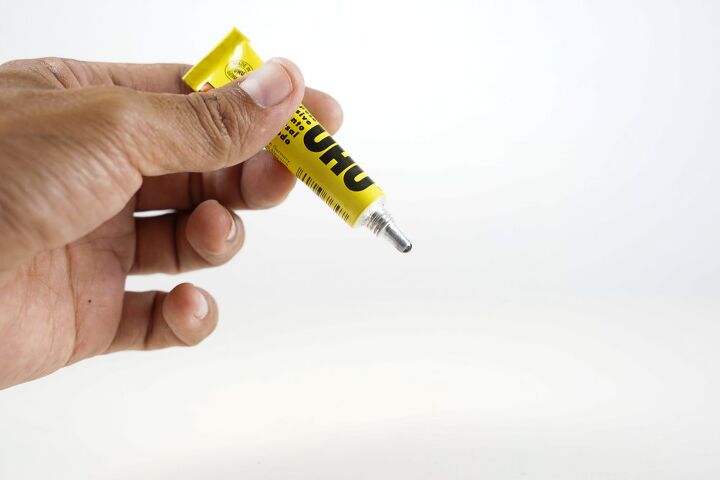






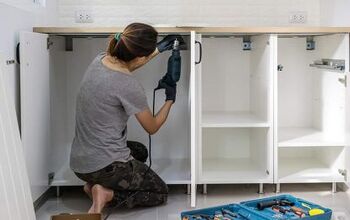
![The 5 Best Angle Grinders – [2022 Reviews & Buyer's Guide]](https://cdn-fastly.upgradedhome.com/media/2023/07/31/9071326/the-5-best-angle-grinders-2022-reviews-buyer-s-guide.jpg?size=350x220)




